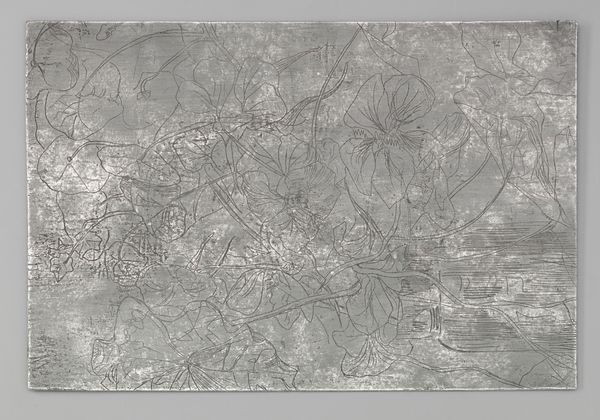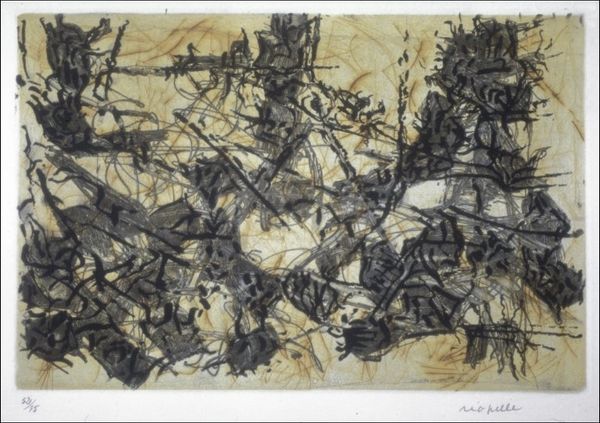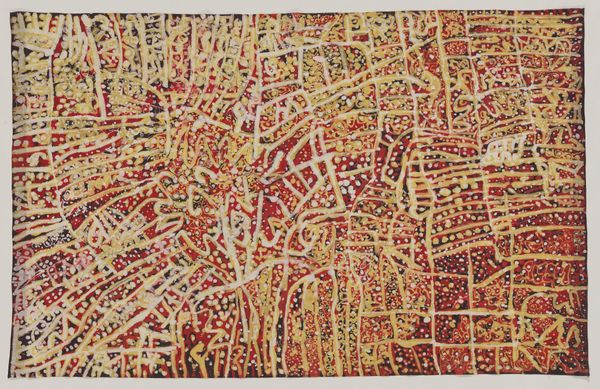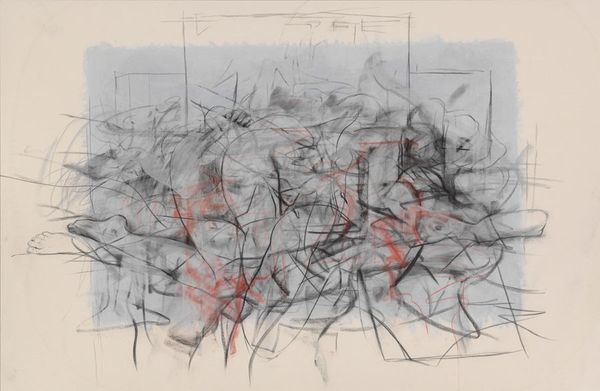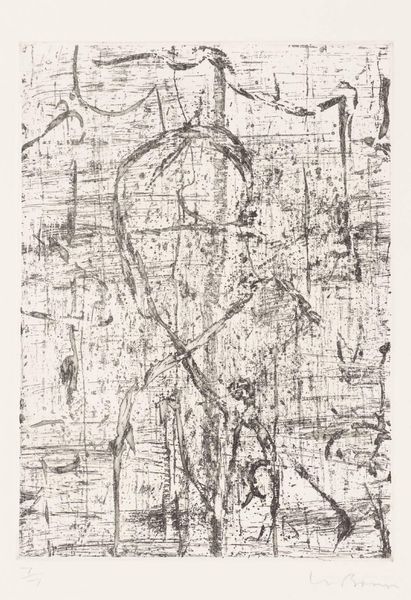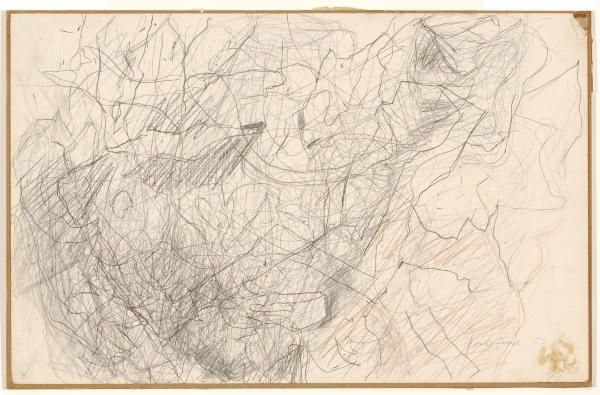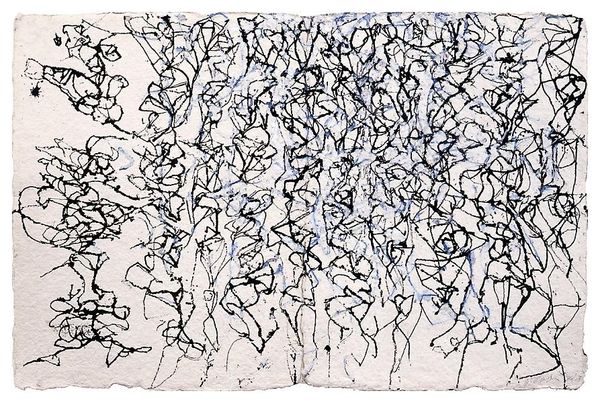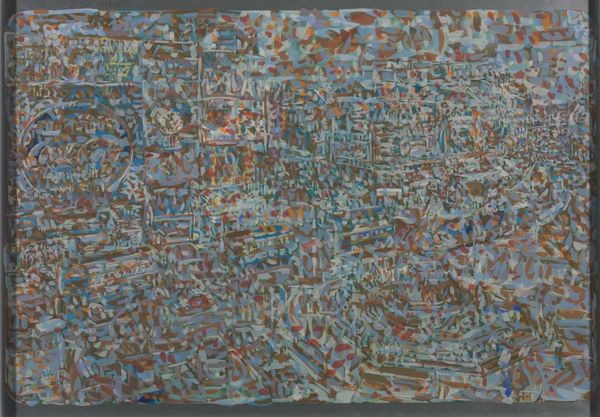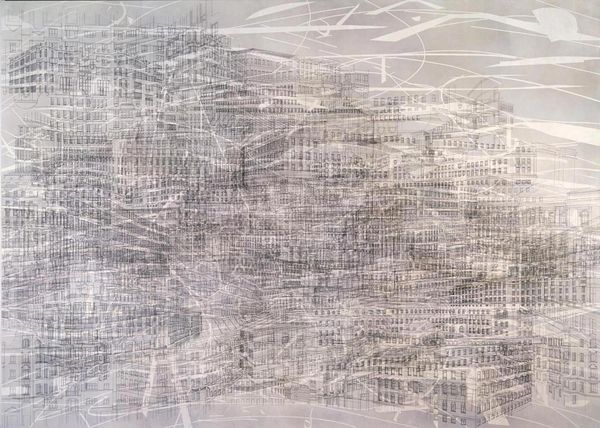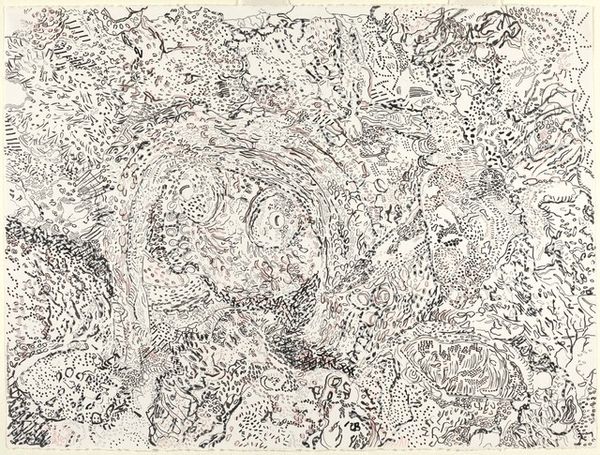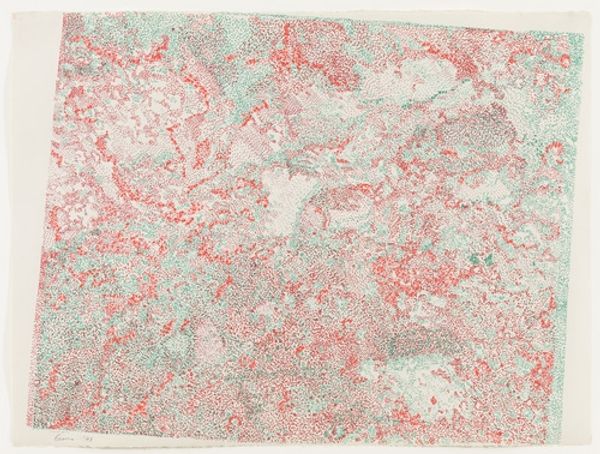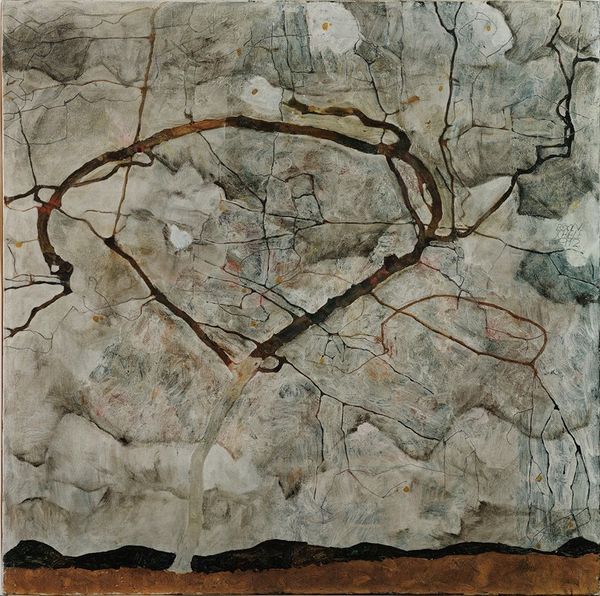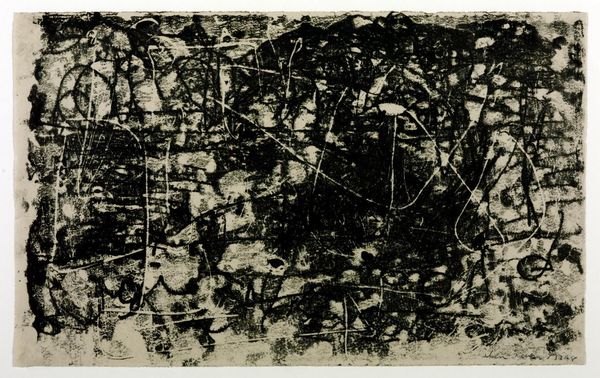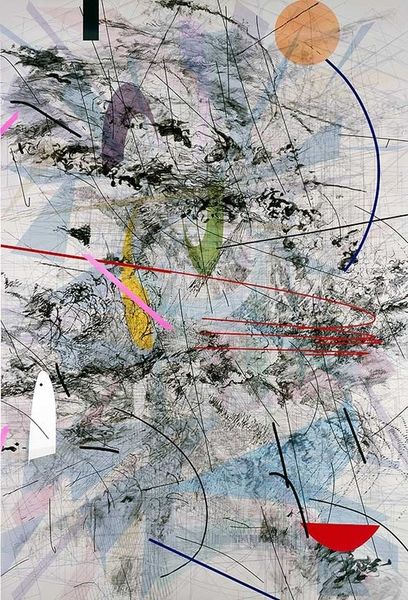
Dimensions: 80 x 104.8 cm
Copyright: Jean-Paul Riopelle,Fair Use
Curator: Jean-Paul Riopelle’s “Jute IV,” created in 1967, employs a compelling mixed-media approach that combines graphite, printmaking, and impasto techniques. Editor: It's a captivating image, yet somewhat unsettling at first glance. The tangled lines and muted grays give it a chaotic feel, like looking into a storm. Curator: Indeed, Riopelle's artistic milieu often navigated between gestural abstraction and the automatism embraced by the Surrealists. Looking at “Jute IV,” one sees that his exploration of abstract form goes beyond mere aesthetics. The work can be viewed as a reflection of its time, mirroring the mid-century tensions of social structures through fragmented lines. Editor: I can see that, and there's a striking rawness that conveys the sense of social fragmentation but also ecological degradation of its era. Those scattered blues and reds punctuate the greyscale palette with almost violent undertones. It is quite evocative for something mostly monochrome. Curator: The layered textures and use of impasto add significant depth. Considering it as a print with graphite, those textures take on a new kind of boldness for a traditionally reproducible medium. It resists standardization, it creates an authentic image for viewers engaging with it now and decades after its creation. Editor: Precisely, it resists easy consumption. And beyond the formal elements, I see echoes of socio-political disruption, perhaps the unease percolating in society reflected through this layering. Its messiness reads as a metaphor for systemic issues – environmental carelessness, political disillusionment, maybe even hints of anti-establishment resistance. Curator: Thinking about how galleries and museums displayed pieces like "Jute IV", we can analyze the social contexts where this type of abstraction gained visibility, indicating evolving societal tastes and ideological acceptance. The lack of specific iconography would make this palatable for audiences that may be adverse to overtly politically themed art. Editor: Thank you. That gives me much to ponder. Curator: Yes, the politics of abstract imagery invites that.
Comments
No comments
Be the first to comment and join the conversation on the ultimate creative platform.
